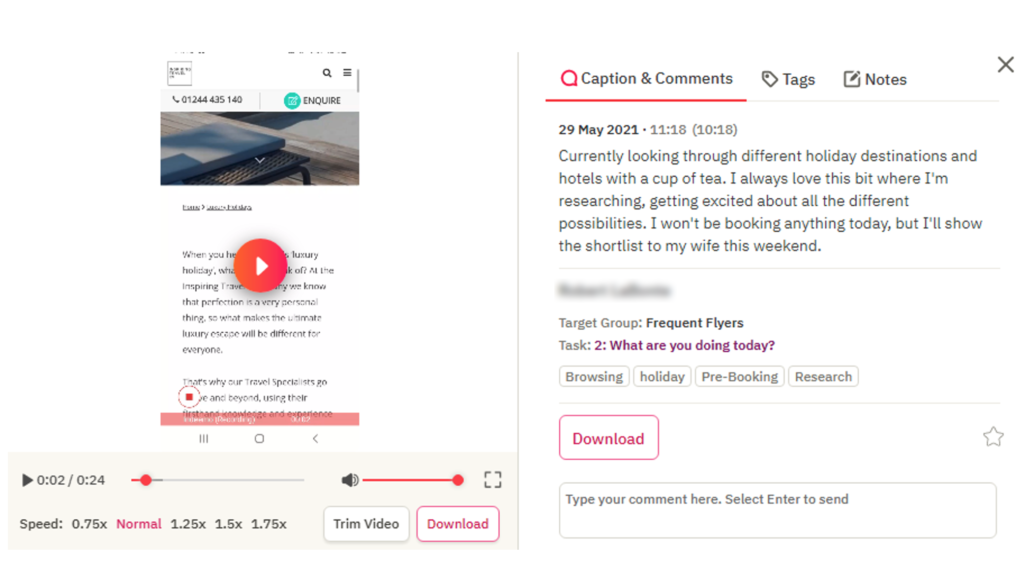What is a Diary Study?
A diary study is a technique for studying user behaviour over a flexible period in a real-world environment where we can capture insights and observations that would otherwise be inaccessible during typical user testing sessions.
Although there are many ways to conduct a diary study, all involve some form of regular submission from participants, detailing interactions they had with your products and services, often with additional details to supply surrounding context. While a diary study can take longer to conduct than other techniques, the insight offered is invaluable and unobtainable by other means.

When to use a diary study
Diary studies allow you to discover how people are using your products in a real-world environment, where there may be factors influencing the user experience that are impossible to replicate in a user testing session.
Diary studies can tell you:
- When, how, and why people interact with your services
- How interaction changes over time
- How your services fit in with the broader context of people’s lives
- What issues people face in using your services
- What pain points remain unaddressed by your services
Because diary studies are a hands-off research approach, they are incredibly beneficial when it is critical to avoid influencing participants. Since people interact with products or services in their own time, diary studies can showcase more naturalistic behaviours.
Diary studies are also typically used when you expect people to have multiple interactions with your product over a given period, as you can use other forms of Contextual Inquiry for sole interactions.
Different types of Diary Study
There are numerous kinds of diary studies, and all gather information in different ways with different levels of specificity. Our expert advice can help you decide which approach best achieves your research requirements.
Pen & Paper
Participants write physical records detailing their experiences, emotions, and interactions with products throughout the day. These diaries may be freeform but also often include specific tasks or questions as provided by the researcher. It is a low-tech solution, but it produces physical artefacts that can be powerful tools and is easier to use for less technically-abled participants.
Blog/Mobile Ethnographic Tool
Participants create diary entries and complete tasks, as set by the researcher, using a digital blog, social media platform, or a dedicated diary study tool like dscout or Indeemo. Digital tools allow participants to upload photos and videos alongside their text entries, producing a digital record of submissions that researchers follow live.
Researchers can interact with participants directly during the study, probing for more detail on interesting submissions or assigning users new tasks as the research continues. The analysis is also more sophisticated, producing interactive libraries of content that can be searched and accessed by business stakeholders to bring the outputs to life.
One day diary
Short diary studies can be used when there is limited time for research, but you need insights into daily interactions. A cohort of participants records their experiences over a single day, so a larger cohort can generate more data in a shorter period. One-day diary studies can be done using pen and paper or electronically.
Interested in carrying out this research method with your customers/users? We’d love to talk about how we can support you.
Want to conduct a diary study?
Bunnyfoot has always prioritised evidence capture and valid, bespoke study designs to truly understand the nature of user engagement, interactions and behaviours, in a holistic way.
If you would like to talk about how we can support you with gaining a deeper understanding of your audience so you can make evidence-driven design decisions, we’d love to talk!
Contact us to see how we can help
Please complete the following form, alternatively, you can email us. For jobs and work experience opportunities, please visit our jobs page.
Office hours
We are available weekdays, 9am to 5:30pm.
We aim to respond to all messages within 24 hours, if sent within our office hours.





